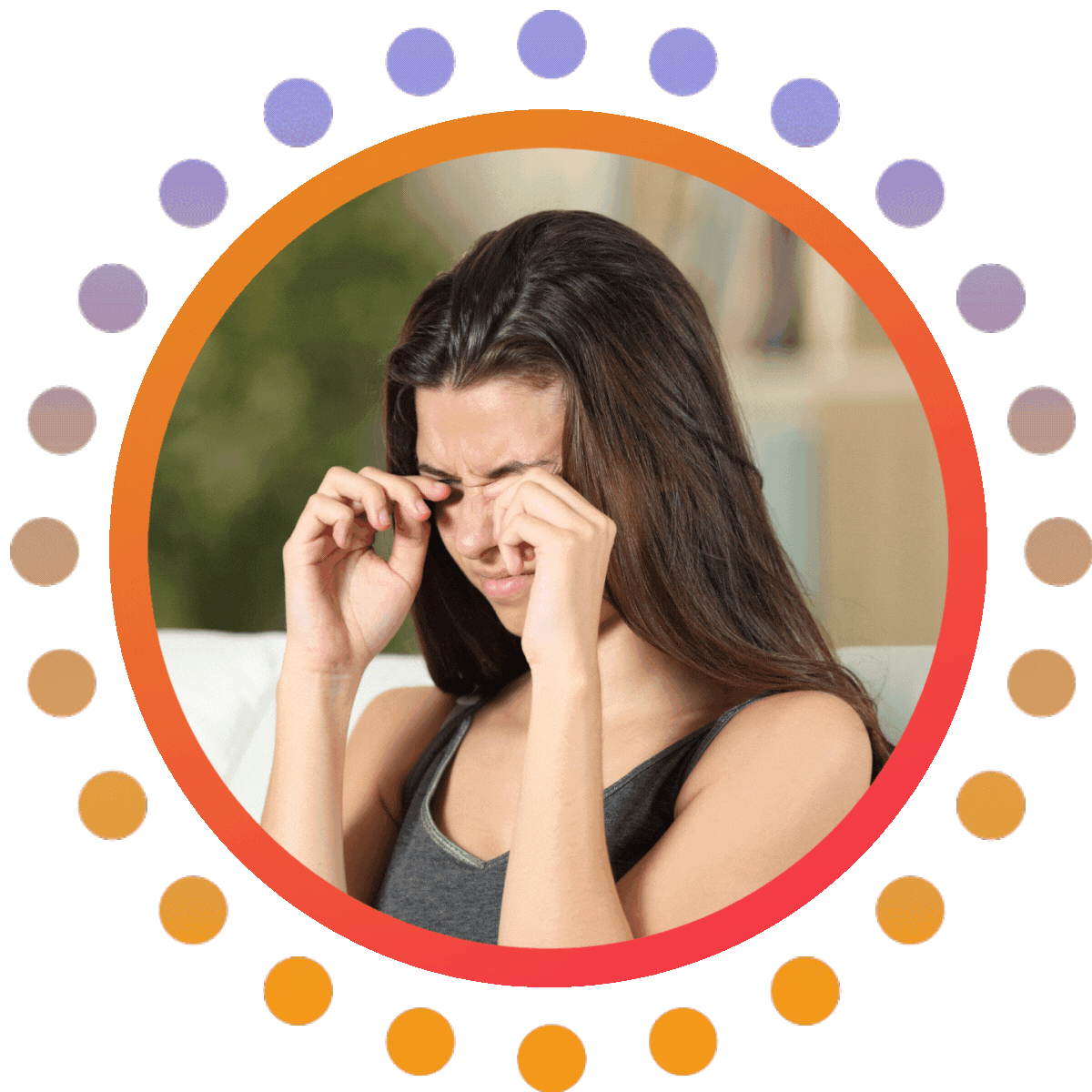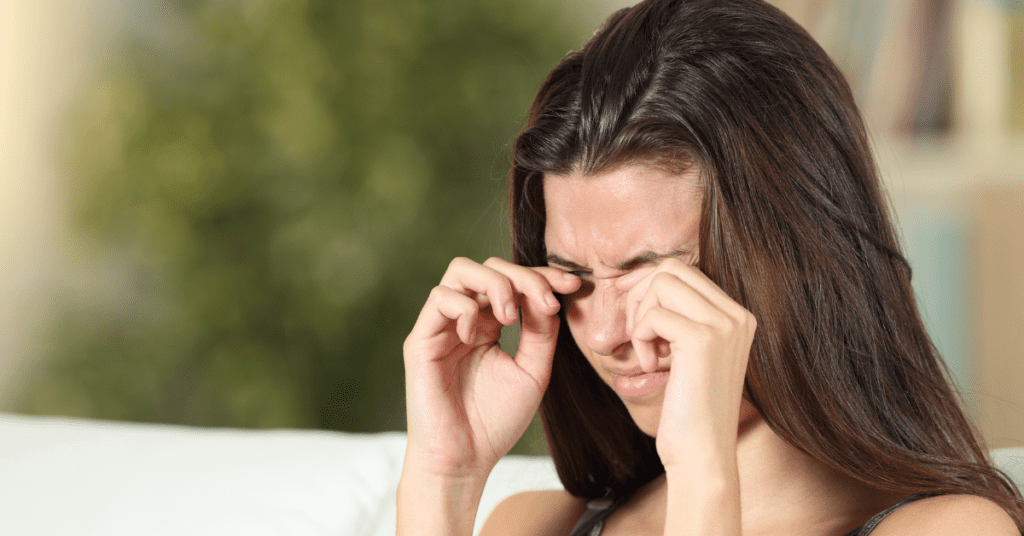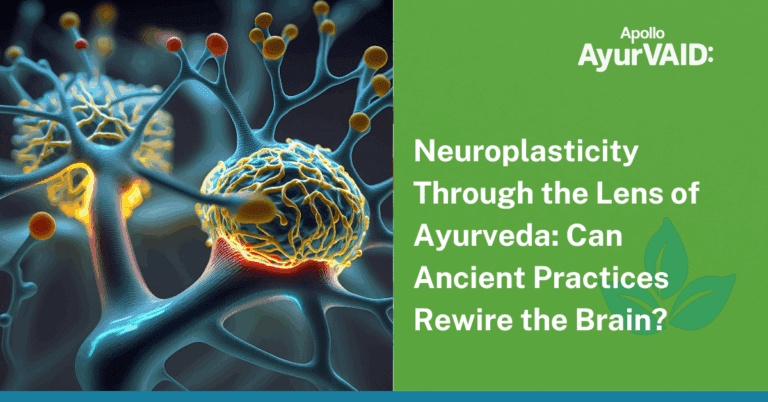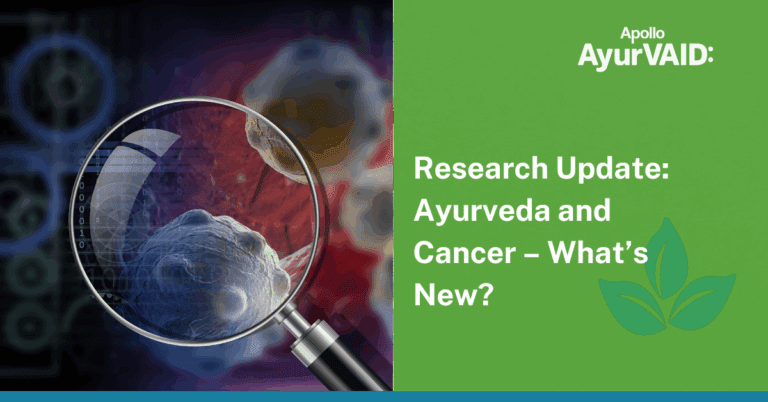
Web Stories
Step Into the Story: Explore Now
Dry eyes syndrome, a prevalent ocular condition affecting millions worldwide, arises from inadequate tear production or poor tear quality, leading to discomfort, irritation, and vision disturbances. While conventional treatments focus on symptom management, treatment for dry eyes in Ayurveda offers a holistic approach rooted in ancient wisdom to address the underlying imbalances contributing to dry eyes.

Dry Eyes Syndrome - What is it?
Dry eyes syndrome occurs when the eyes fail to produce sufficient tears or when tears evaporate too quickly, resulting in ocular surface inflammation and discomfort. Factors contributing to dry eyes include aging, hormonal changes, environmental factors (e.g., dry climates, air conditioning), prolonged screen time, certain medications, and systemic conditions (e.g., autoimmune diseases, diabetes). Common signs and symptoms of dry eyes include persistent eye redness, stinging or burning sensation, grittiness or foreign body sensation, excessive tearing (paradoxical reflex tearing), blurred vision, sensitivity to light, and discomfort exacerbated by activities such as reading or using screens.
Ayurveda views dry eyes as a manifestation of imbalances in the doshas (Vata, Pitta, and Kapha) and dhatus (tissues), particularly affecting the Rasa dhatu (plasma). Excessive Vata dosha and Pitta dosha aggravation, along with impaired Rasa dhatu nourishment, contribute to dry eyes syndrome according to Ayurvedic principles.
What are the Types of Dry Eyes?
Aqueous tear deficit and evaporative dry eye are two basic forms of dry eyes.
Aqueous tears deficiency: The lacrimal glands’ inadequate watery tears in aqueous tear deficiency cause the eyes to feel dry, irritated, or inflamed. Aging, changes in hormones, some drugs, or autoimmune illnesses can all cause this.
Evaporative dry eye: In evaporative dry eye, tears produced by the Meibomian glands lack an oily layer, so tears dry up too rapidly. Poor-quality tears resulting from this fail to adequately protect the eyes. It can be brought on by dry surroundings, eyelid issues, or frequent contact lens wear.
How are dry eyes viewed through Ayurveda?
From an Ayurvedic standpoint, the dry eye symptoms are recognized as Sushkakshipaka, a disorder afflicting the whole eye. This results from the imbalance and aggravation of both Vata and Pitta Doshas, which inflames the eyes, generates heat and dryness. Sushkakshipaka can be started by several elements, including:
- Conditions of hot, dry, or windy nature that cause the body and eyes to dry out.
- Extended use of digital devices include computers, cellphones, or tablets that strain the eyes and lower blinking.
- Eating sour, spicy, salted, or fermented meals that raise body and eyes’ heat and acidity.
- Drinking alcohol, coffee, tobacco, narcotics, which can saps body’s energy and moisture from the eyes and tissues.
- Emotional stress, anger, worry, or irritation that cause heat and tension in the eyes and the head.
- Menopause, hormonal changes, or aging that affect tear output and quality.
Conventional Treatment
Conventional treatments for dry eyes encompass a spectrum of interventions aimed at alleviating symptoms and improving ocular lubrication. Primary modalities include lubricating eye drops, gels, and ointments containing artificial tears or lipid-based formulations to replenish tear film. Prescription medications like cyclosporine emulsion eye drops may be prescribed to reduce inflammation and enhance tear production.
Lifestyle modifications, including humidification, blink exercises, and ergonomic adjustments, are advocated to optimize ocular comfort and minimize exacerbating factors.
Ayurveda Treatment For Dry Eyes
Ayurvedic management of dry eyes entails a comprehensive approach that addresses underlying causes, rejuvenates ocular tissues, and enhances tear quality and quantity. Ayurvedic management of dry eyes entails a comprehensive approach that addresses underlying causes, rejuvenates ocular tissues, and enhances tear quality and quantity. Ayurvedic treatment for dry eyes focuses on balancing the doshas, especially Vata, and involves therapies like Netra Tarpana, herbal medications, and dietary modifications to restore and maintain optimal eye health. Key treatment modalities include:
Herbal Remedies: Ayurvedic formulations containing herbs renowned for their ocular nourishing properties are prescribed to mitigate dry eyes symptoms. Triphala, Shatavari, Guduchi, and Saffron are commonly utilized to soothe inflammation, improve tear secretion, and rejuvenate ocular tissues. It is important to note that these herbs and herbal formulations are potent and effective only when prescribed by Ayurveda doctor after thorough evaluation.
Dietary and Lifestyle Modifications: Dietary modifications emphasizing hydrating foods, including fresh fruits, vegetables, and omega-3 fatty acids, bolster ocular health. Lifestyle practices such as regular eye exercises, adequate hydration, restorative sleep, and stress reduction techniques contribute to ocular comfort and well-being.

Netra Tarpana
Netra Tarpana is a therapeutic procedure in Ayurveda aimed at nurturing and rejuvenating the eyes. Derived from the Sanskrit words “netra” (meaning eyes) and “tarpana” (meaning nourishment or satisfaction), this traditional treatment involves the application of medicated ghee (clarified butter) around the eyes in a specially constructed dam made of dough. The eyes are then gently bathed in the warm, soothing ghee, allowing the medicated oil to penetrate the ocular tissues and provide nourishment, lubrication, and rejuvenation.
The process of Netra Tarpana begins with the preparation of the medicated ghee, which is customized based on the individual’s Ayurvedic constitution (Prakriti) and specific ocular concerns. The ghee may be infused with herbs known for their beneficial properties in supporting eye health, such as Triphala (a combination of three fruits), Saffron, Brahmi (Bacopa monnieri), and Rose petals. The dough dam, typically made from black gram flour or wheat flour, is carefully placed around the eyes to create a barrier, ensuring that the medicated ghee remains in contact with the ocular surface during the treatment.
Once the dough dam is in place, warm medicated ghee is poured into the enclosure, covering the eyes completely. The individual lies comfortably with closed eyes while the ghee remains in contact with the ocular tissues for a specified duration, typically ranging from 15 to 30 minutes. During this time, the soothing warmth of the ghee promotes relaxation, while the therapeutic properties of the herbs penetrate the eyes, nourishing the tissues, lubricating the tear film, and revitalizing the visual system. After the designated period, the excess ghee is carefully removed, and the eyes may be gently cleansed with lukewarm water. Netra Tarpana is often performed as part of a series of treatments prescribed by Ayurvedic practitioners to address specific eye conditions, promote eye health, and enhance overall well-being.
Ayurvedic treatment for dry eyes offers a comprehensive approach that addresses the root causes of the condition, restores balance to the doshas, and rejuvenates ocular tissues. By incorporating herbal remedies, ayurvedic eye drops for dry eyes, dietary and lifestyle modifications, and traditional therapies such as Netra Tarpana, individuals with dry eyes can experience long-lasting relief and improved ocular health. Consulting with a qualified Ayurvedic practitioner can provide personalized guidance and optimize treatment outcomes for dry eyes syndrome, nourishing vision for a brighter future.






